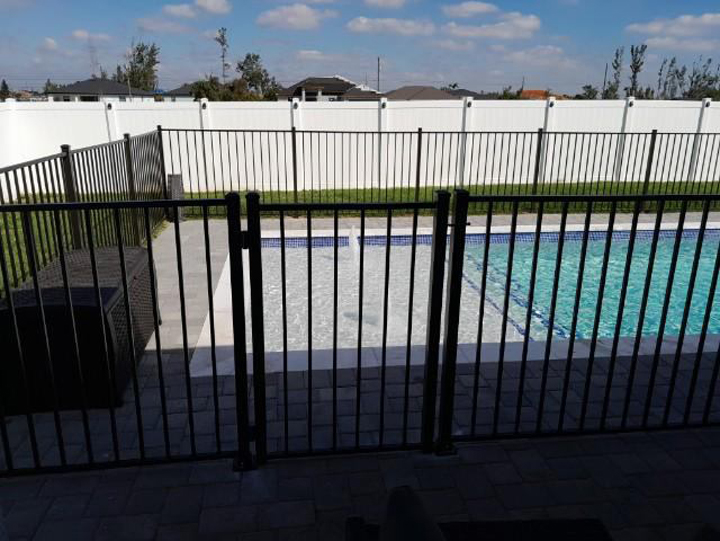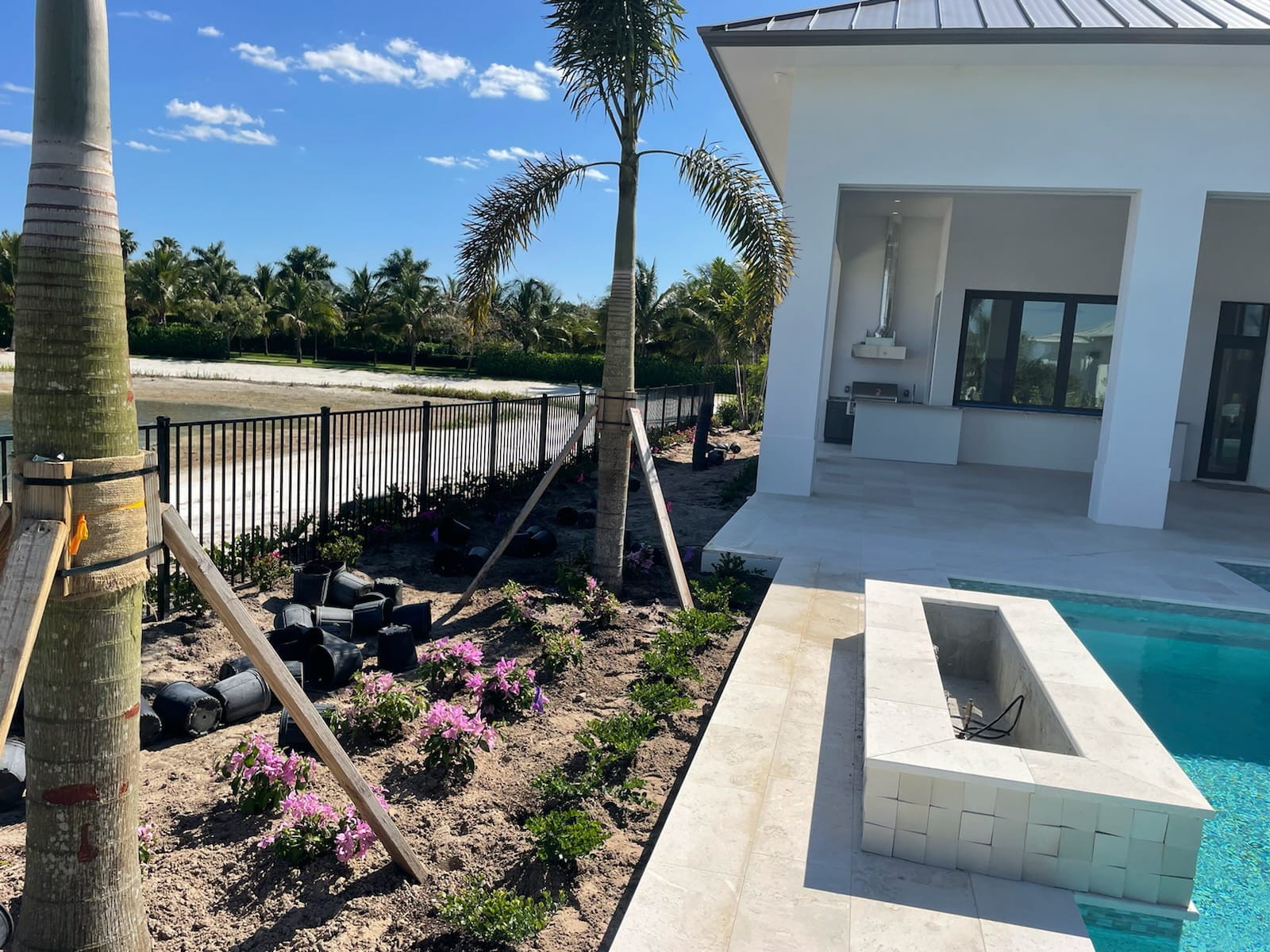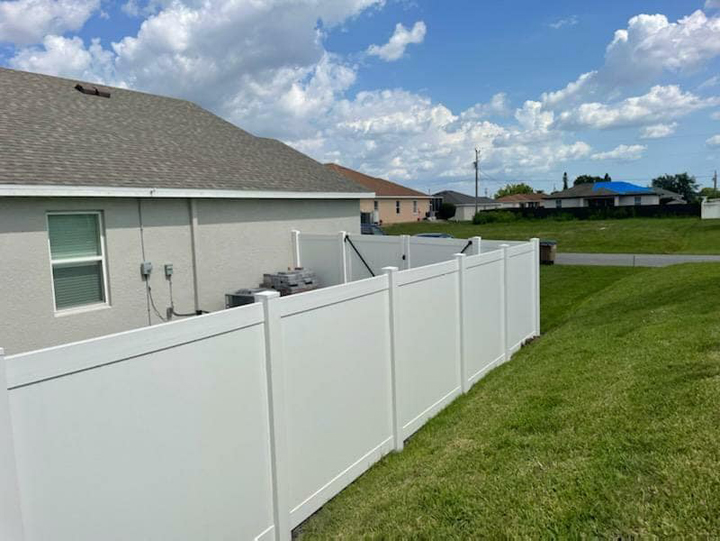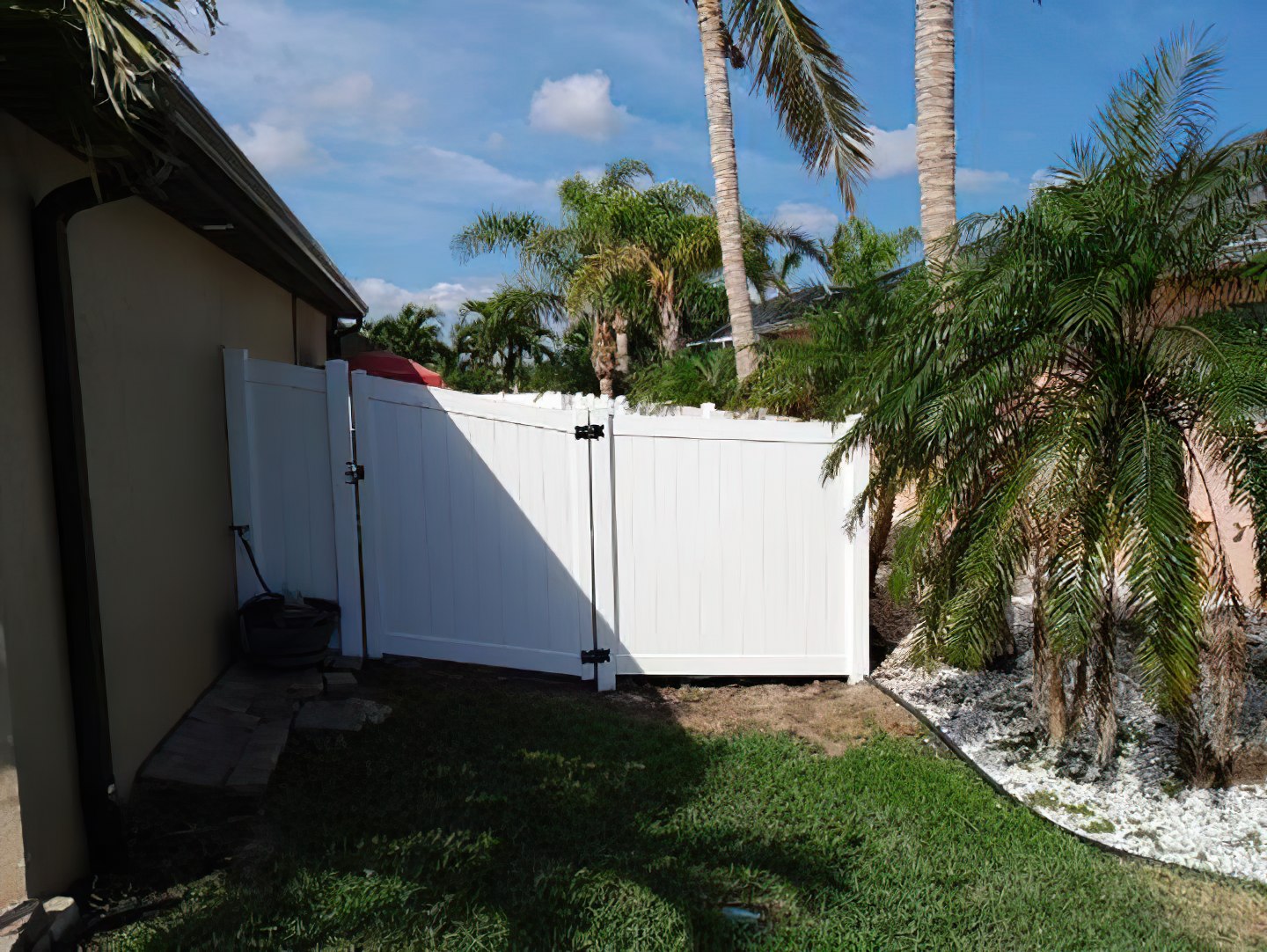Garden fencing is pivotal in yard design, serving practical and aesthetic purposes. It defines property…

Fencing for Safety: Childproofing Your Home and Pool Area
Child safety is a top priority for any responsible parent, caregiver, or neighborhood hosting many families. Children and pets can be naturally curious, especially regarding a home and pool area, and are often drawn to potential hazards. Therefore, a budget for specific safety items like a quality pool safety fence can be essential. A budget would undoubtedly be a priceless addition to any residence, providing a protective barrier to prevent accidents and create a secure environment. In this comprehensive guide, brimming with essential information about various fencing services, we will delve into various aspects of childproofing using a fencing service, covering everything from understanding the risks to maintenance and upkeep.
Understanding the Risks
Common Hazards in a Home and Pool Environment
Before we delve into the details of childproofing with fencing, it’s essential to recognize the common hazards in and around the home and pool area. These hazards may include open staircases, sharp edges, electrical outlets, unsecured cabinets, and, most critically, unfenced pools or water features. Identifying these risks will help you prioritize and plan your fencing service, ensuring a balance between pool safety fence price and quality.
Statistics on Child-Related Accidents and Drownings
Child-related accidents and drownings are distressingly common, causing heartbreak for many families. According to the Centers for Disease Control and Prevention (CDC), drowning is the leading cause of accidental death for children aged 1 to 4. Inadequate fencing around pools, including a lack of pool safety fences, is a significant contributing factor to these tragic incidents. Understanding these harrowing statistics underscores the importance of fencing services and proper safety measures.
The Need for Proactive Safety Measures
Childproofing your home and pool area should not be a reactive response to an accident; rather, it should be a proactive approach within your budget to prevent such incidents from happening. As part of your pool fencing plan, a pool safety fence is a proactive safety measure that immensely reduces the risk of accidents and offers peace of mind to parents, caregivers, and pet owners.
The Ideal Childproofing Fence
Height, Design, and Suitable Materials
- When choosing childproofing items, certain factors are essential to consider. The fence’s height is crucial in deterring adventurous climbing attempts by curious children and pets. For optimal childproofing, a recommended minimum height of 4 feet is ideal. Additionally, a well-designed fence without footholds, horizontal bars, or gaps minimizes the risk of children using it as a climbing tool.
- Selecting the right materials for your childproofing fence and pool safety fences is vital for safety and durability. Look for fencing services that offer non-toxic and child-friendly materials, free from harmful chemicals. Popular choices like vinyl, wood, and aluminum meet safety standards. Consider the maintenance requirements to ensure the fence’s longevity and effectiveness, all within your budget.
Pool Area Safety Guidelines
A. Pool Fence Regulations
Before installing your pool safety fence, understanding the local neighborhood safety regulations and codes governing pool barriers is worth understanding. Maintaining compliance with these measures is crucial to ensure the fence’s effectiveness in preventing access to the pool area. Regularly check for updates and stay adherent to any changes in safety standards. The pool is where quality fencing services can provide crucial information and support.
B. Creating a Safe Perimeter
When planning a secure environment for children, determining the appropriate distance between your pool safety fence and the pool edge is crucial in denying direct access to the water surface. Be vigilant to ensure no gaps or openings exist in the fence through which a child or pet could squeeze. Also, consider using additional safety items like pool alarms to provide extra layers of protection.
Childproofing Other Areas with Fencing
A. Securing Outdoor Play Areas
Creating a safe play area for children and pets in family-friendly neighborhoods is vital. Fencing around playgrounds and playsets prevents wandering and safeguards them from potential hazards. Opt for child-safe, sturdy, and weather-resistant materials to enhance the quality of outdoor games and activities with friends and anything from toys to games for your son.
B. Fencing for Garden and Landscape Safety
Integrate fencing into your garden and landscape design for child and pet safety. It acts as a barrier, preventing access to areas with sharp tools or dangerous plants. Strike a budget-friendly balance between aesthetics and safety to maintain an attractive yard, lot, deck, sidewalk, porch, and street view around your house.
DIY vs. Professional Installation
Pros and Cons of DIY Childproofing Fencing Projects
Choosing a DIY childproofing project can save costs but requires meticulous planning and execution. Remember that DIY endeavors like installing a fence or setting up a baby’s crib may demand more time and effort than professional services. Prioritize safety precautions for toddlers when handling such tasks. While professional pool and safety fences services may come at a higher price, their experience ensures your property is secure, leaving you with peace of mind. Professional services can be particularly advantageous when dealing with specific problems, ensuring a fun and safe environment for your children to enjoy with vibrant colors around your property.
Benefits of Hiring a Professional Fencing Contractor
Hiring professional fencing installers ensures expert installation while adhering to strict safety regulations. Considering your needs and budget, a professional fencing company can recommend the best materials, designs, and accessories. A good fencing service balances price, quality, and design to provide optimal safety for your family. For instance, families with swimming pools may require different fencing solutions than those without. While this choice may involve higher upfront costs, using a professional installer offers peace of mind, a secure childproofing solution, and often a lifetime warranty on the product.
Ensuring Proper Installation and Effectiveness
Regardless of whether you choose to DIY or hire a professional installation team, ensure that the fence, whether it’s around your yard, deck, or swimming pool, is installed correctly and meets all safety standards. Regularly inspect the fence to identify any wear and tear and address any issues promptly to maintain its effectiveness, all in the interest of your family’s safety. A rough estimate suggests that regular checks add years to the lifespan of a fence.
Maintenance and Upkeep
Regular maintenance is crucial for childproofing fences, especially around swimming pools. Check for loose or damaged parts and promptly repair or replace them to maintain the fence’s strength. Keep it clean and debris-free to ensure proper functionality. Additionally, ensure the lifetime warranty is up-to-date and valid, benefiting anyone, from kids to adults, who use the fence for safety.
Educating Children on Fence Safety
Teaching Kids About the Purpose of the Fence
Educate children, of all ages, even from a young toddler stage, about the importance of the fence as a safety barrier. Encourage them to understand that certain areas, like the swimming pool, are off-limits without adult supervision.
Practicing Safety Rules Around the Fence and Pool Area
When playing near the fence or pool area, establish clear safety rules and guidelines for children, including your baby or toddler. Teach them not to climb the fence or attempt to open gates without adult permission.
Encouraging Open Communication About Safety Concerns
Create an environment of open communication where children feel comfortable expressing their safety concerns. Encourage them to notify you or any other adult in the family if they notice any damaged parts or potential hazards around the fence or pool area.
Frequently Asked Questions
What is the minimum height for a childproofing fence?
The recommended minimum height for a childproofing fence, whether it’s around a playground or a swimming pool, is 4 feet. This height deters climbing attempts by children, especially adventurous toddlers, keeping them safe from potential dangers.
Are vinyl and wood safe materials for childproofing fences?
Yes, vinyl and wood are safe materials commonly used for childproofing fences. Ensure they are free from harmful chemicals. When installing such fences, it’s advisable to consult with professional installers who provide lifetime warranties on their services and products.
How often should I inspect my childproofing fence?
Regularly inspect your childproofing fence at least once a month. Check for any damage, loose parts, or signs of wear and tear. A child safety fence is particularly crucial if you have a baby or toddler, as they can easily wander into unsafe areas like the swimming pool if the fence is not secure.
How does pool safety fencing protect children?
Pool safety fencing provides a barrier that prevents direct access to the pool, reducing the risk of accidental drownings. A pool safety fence is essential for any family with a pool in their backyard. Properly installed pool fencing can save lives and often comes with a lifetime warranty as part of the installation package.
What are the requirements for pool safety fencing?
Pool safety fencing regulations may vary depending on your local jurisdiction. However, common requirements include an estimate of necessary measurements and appropriate materials.
- A minimum height.
- Self-closing and self-latching gates.
- A lack of footholds or climbing points on the fence.
Are there childproofing fence options specifically designed for pools?
Yes, there are pool-specific childproofing fence options available. Pool safety fencing is designed to meet specific safety standards and effectively secure your pool area, protecting children of all ages from potential hazards. It’s essential to consult with professional installers to ensure that these fences come with a lifetime warranty.
Can I install a childproofing fence around an above-ground pool?
You can install a childproofing fence around an above-ground pool to enhance safety. Ensure the fence meets the required height and complies with local safety regulations. If you need more clarification about installation procedures or requirements, it’s best to consult with a professional installer who provides a lifetime warranty for their work.
Are there any childproofing fence options for renters or temporary installations?
Yes, temporary childproofing fence options like freestanding and removable fences are available. These can be suitable for renters or situations where permanent installations are not desired, especially when you have babies or toddlers.
How can I make my existing fence childproof?
If you, as a family, already have a fence, but it may not be entirely childproof, you can make modifications to improve its safety. Add self-closing and self-latching gate mechanisms, repair damaged sections, and ensure no gaps or footholds that children of all ages can use to climb over.
Conclusion
Childproofing your home and pool area using the right fencing significantly reduces accident risks and creates a secure space for children to play and explore. Understanding common hazards, ideal fence design, and materials, while adhering to safety regulations are essential for effective childproofing. Whether you choose a DIY job or hire professionals, proper installation and maintenance ensure the fence’s efficacy in protecting your little ones. Childproofing is a proactive way to ensure a safer and happier environment for your children to grow and thrive outdoors. Working with professional installers, which offer lifetime warranties on the fence, adds extra security and peace of mind, making a notable difference in safeguarding your patio, side yard, or any outdoor place. Stay safe!





